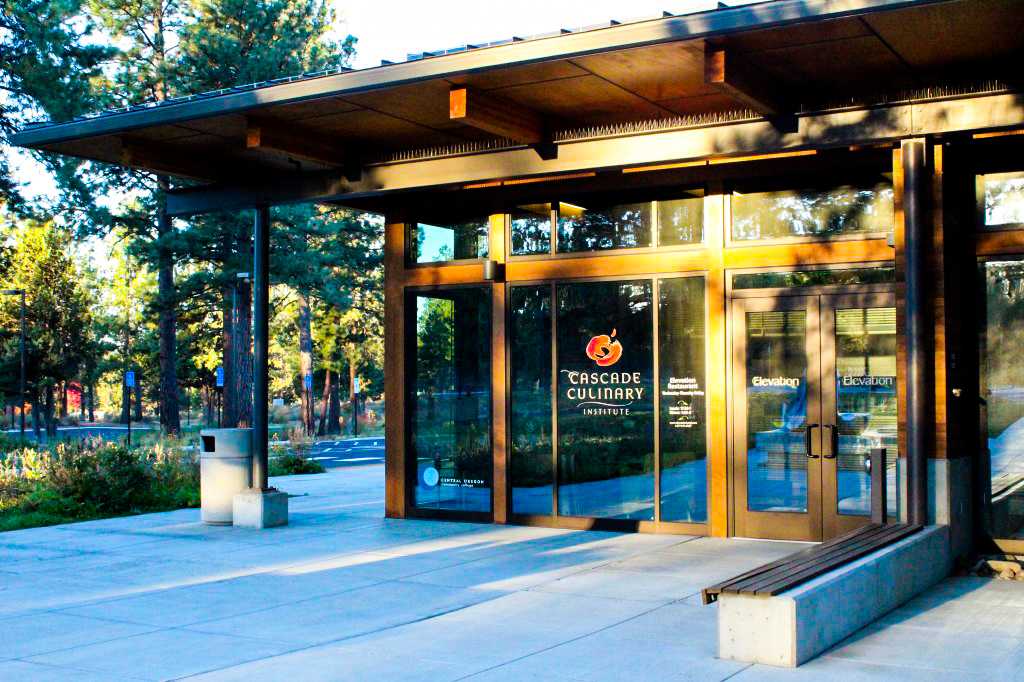Sarah Lightley/The Broadside
On October 7th, Central Oregon Community College (COCC) and Summit High School went into lockdown when a forestry student with a compass was mistaken for an armed gunman. Since the incident, The Broadside has been looking into what occurred and how the schools responded to the incident. Here’s what we know.
Summit High School Lockdown:
Summit mistakenly was told to go into a lockdown, and it took several minutes for police to correct school authorities and place the school in a lockout.
Summit received the call around 3:21 from the Bend Police Department to go into lockdown.
“It was just a few minutes after that, maybe less than five minutes, before we got that confusion figured out,” said Mr. McDonald, Summit’s principal.
At this time students who were in the commons or heading to the buses were instructed to leave the building.
“It was at the end of the school day. We had buses in the back and there were some kids that were on the buses. We sent kids out the back doors. Some of the kids that were in the commons were told to go outside, which is what they’re supposed to do in a lockdown: If you can get to safety, get to safety,” said McDonald.
“It was frustrating and scary. When we finally found out that it was supposed to be a lockout or secure that was just sort of like, Wow, not good!”
Summit got the call to go into lockout. Emails were sent out to teachers to switch from lockdown to lockout.
When the initial call was received about going into lockdown, McDonald said that the hallways and commons were cleared in/around 30 seconds. Students were tucked in corners, with doors locked and lights off. This response was very quick.
“The drills are working,” McDonald said. “It’s really too bad that we live in an environment where this is one of our concerns.”
Central Oregon Community College Lockdown:
Alicia Moore, the vice president of Student Affairs, described the process when a lockdown report is received at the college: “Call 911 (if someone has not already done so), campus safety would go to the scene to best direct police/emergency responders. Once the police are on the scene, they are in charge of the situation and we follow their direction.”
The college can make a decision about initiating a lockdown independent of law enforcement if the college believes it is necessary for the health and safety of the campus.
COCC has prepared for lockdowns, including an electronic key system, in which one person can lock down all exterior doors remotely.
Moore said, “COCC has an emergency notification system in which all employees and students are automatically enrolled.”
COCC has created pre-written scenarios that allow for quick delivery in an emergency, including a message for an active shooter scenario.
The lockdown on October 7th went as planned, said Moore.
The college identified items that they would add to future protocols including:
- Developing an information sheet for employees regarding how to respond to active shooter situations. This will also include in-person training for those interested.
- Establishing additional backup individuals for our emergency notification and remote door lock systems.
- Even in the event of a false alarm, ensuring that the college provides drop-in, group counseling sessions, along with individual counseling support.
Words from the President of COCC, Dr. Laurie Chesley: COCC is grateful to the faculty and students who called 911 — they believed they saw someone with a gun on campus acted accordingly. We are also grateful to the faculty and students who so quickly cooperated with local law enforcement to help them determine there was not in fact an armed individual on campus. There is no place for ridiculing or shaming anyone’s experiences during such a stressful event. Instead, we can all learn from this situation and extend kindness and empathy to one another.
COCC teacher on campus when the lockdown occurred:
Amy Harper, Professor of Anthropology, was at COCC during the lockdown.
Harper was meeting with another instructor when she turned on her phone to see all of the alerts.
“I saw all the alerts as well as multiple on what’s app group chats. It was a little surreal as the HCC building seemed empty. It was just the other instructor and a student who came into the room asking what was going on,” said Harper.
This was not Harper’s first lockdown. The previous lockdown was scary because she was in a room with a lot of students.
“We have had more conversations about situations like this. Our department brought in a couple of police officers who talked about what to do and what not to do. So, I know the best thing was to turn off the lights (which was hard to do as they were automatic! Every time one of us moved they turned on again), we locked the door and sat in a blind corner.”
After the lockdown, Harper felt that she would rather over-respond to a potential threat than under-respond. Luckily this time it was a false alarm.
Miina McCown and Ellie Ocel contributed to this report.








